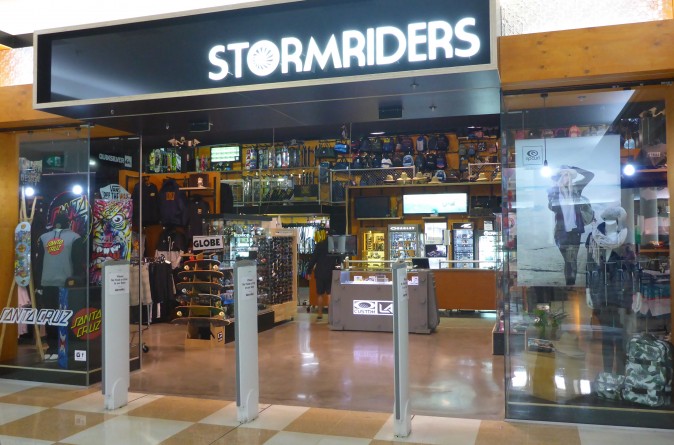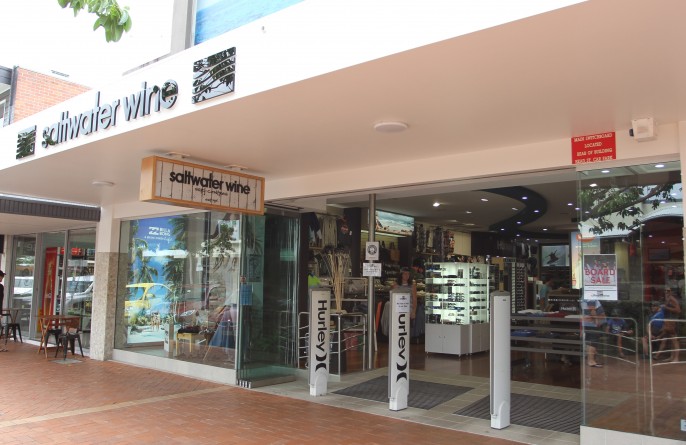Account Manager vs Sales Rep – Retail Partner vs Stockist
By Anthony Wilson
At the recent SBIA Industry Roundtable we looked at Retail KPI’s and what retailers are looking at (or should be) to maximise performance and how reps can help. The session included a panel discussion made up of Jo Branch, the National Sales Manager for Roxy, Mike DiSciascio from Strapper in Torquay and yours truly. The reason why Jo, Mike and I were the “panel” was because of our work with the Quiksilver and Roxy Account Managers giving that group a greater understanding of retail and product management.
I’ve had some feedback from the Roundtable session that was a bit “us v’s them” so I thought I’d add some context and dive a bit deeper. Yes, the panel discussion did get a bit prickly at times, but the reality is the relationship between brands and retailers are all very different and there are a lot of moving parts to it like distribution, trading terms, service levels and the key element of Account Management. It’s not always possible to sit around the campfire and sing Kumbaya together.
We also touched on the obligations that the owner of a retail store has and whether they are understood by their reps. My answer was, “No, not really” which to be honest felt like it went down like the proverbial lead balloon, so to start with I’ll try and explain those obligations a little further. Firstly, a disclaimer that in no way am I downplaying the financial commitments of reps and anyone that is an employee. Like most everyone, we have families to feed, rates every quarter, mortgages and electricity bills to pay.
For a retailer, as with most small business owners, all of those pressures are essentially the same, but we also have a whole other layer of commitment and complexity. We have personal guarantees that essentially mortgage everything you own; there is rent to pay, utilities to pay, monthly accounts due and employees to pay. It’s a scary feeling when you sign a lease over five years at say, $200K rent per year, and the lease includes a “personal guarantee”. So if things go pear shape the shopping centre comes after you and your family’s personal assets. It’s very confronting when payday rolls around and you don’t know where or how will you will find the money to pay the people who have become part of your extended family and who have their own family relying on them to get paid. It’s easy to say we should plan better, unfortunately it’s not always possible. Take this Autumn for example; it’s been unseasonably warm and many retailers are down 10, 15 or 20%. Right now the last quarter BAS payment is due, rent is also due any day now, April 30 day accounts are due and it’s payday on Monday…if you are down 10-20% the projected bank balance is not where it should be – Houston we have a problem.
Yes, the term “whinging retailer” is often fitting, but the reality is the pressures are amplified when there is no growth in top line sales, but meanwhile rents keep going up, wages keep going up etc. etc. and the squeeze on the business becomes very real. The fine line between being profitable and unprofitable gets very fine. Yes, we choose this life but it’s really refreshing when Brands and Account Managers have an understanding and don’t constantly hassle us to buy more.
We also discussed the difference between an “Account Manager” and a “Sales Rep” and the paradigm of “sell through, not sell to”. Yep, it’s semantics, but there is an important difference in the intention. I’m not sure I clearly explained how it looks in my mind so here goes.
A “Sales Rep” operates the way the apparel and accessories part of our industry pretty much always has – load the retailer up as much as possible at indent then, if you’re a bigger account, you will have an “order review” where the Rep will try and load you up even more. You might be lucky to get a store visit between indents and then do it all over again next season, the “push” model. There are obviously variations to the theme and in some cases the push isn’t as big a push. I know I sound negative on it and after 27 years of it I am. Personally I think it is what is holding our industry back and we need to reimagine our whole product to market model, but that’s a story for another day!
On the other hand an “Account Manager” does exactly that – they manage the account. Yes they do the range, but they come knowing the previous seasons performance, what worked, what didn’t. When they do the order review they understand that your budget is based on performance and are suggesting swapping styles for ones that will (hopefully) give better sell through. Then during the season, the Account Manager is asking for sell through reports and is looking at the performance of individual styles. Based on their knowledge of what is working in a broader context they suggest fill ins or rotations, they make sure key styles have visibility, they help with activations and are coming into store to help merch. Yes, they work to maximise the performance of the product and brand. They understand more sell through means more budget… Their job isn’t done until the product is sold. They “sell through …not to”.
They understand more sell through means more budget… Their job isn’t done until the product is sold. They “sell through …not to”.
As I said earlier, there are lots of moving parts to the relationship and the above hinges on a number of things. The retailer and brand need to have trust and a solid working relationship. We didn’t discuss it on the day but there is also the concept of a retailer being a “Retail Partner” as opposed to a being a “stockist”. Being a retail partner means you work with the brand, you provide sell through reports, you pay your account on time, you agree to stock models, you let Account Managers suggest fill in orders and you tell the brand story within your own.
On that point. One bugbear I hear about a lot from brands is when retailers slip out into 60 and 90 days or more on payments and don’t accept phone calls. In my experience it’s best to get on the front foot and pick up the phone. Most of the accounts guys are reasonable; they just want to know when they are getting their money, and not accepting their call only pisses them off. Finally, you need to be able to provide the information. As we discussed on the day there are plenty of retailers that don’t have point of sale software or if they do, they are glorified cash registers. In today’s retail environment managing your business to performance is vital; the only way you can know what is and isn’t performing is with a POS software system. Performance management is probably another story for another time…
I could go on for hours so I’ll wrap this up by posing a question; Account Manager v’s Sales Representative and Retail Partner v’s Stockist… What are you now, and what do you want to be? If it is something different from where you are now what do you need to change to get there?
Thanks for listening, have a great day!


*Anthony Wilson is owner of Saltwater Wine/Stormriders and also president of the SBIA. His stores have won the SBIA Australian Retailer of the Year the past two years and are also 2015 ARA Independent Retailer of the Year








